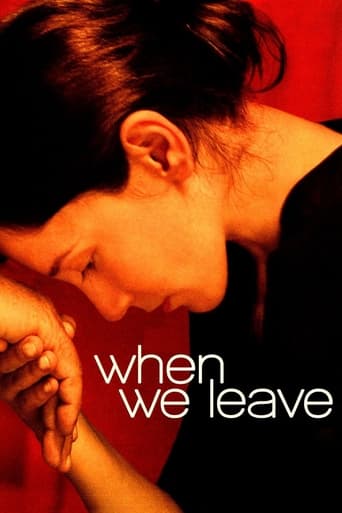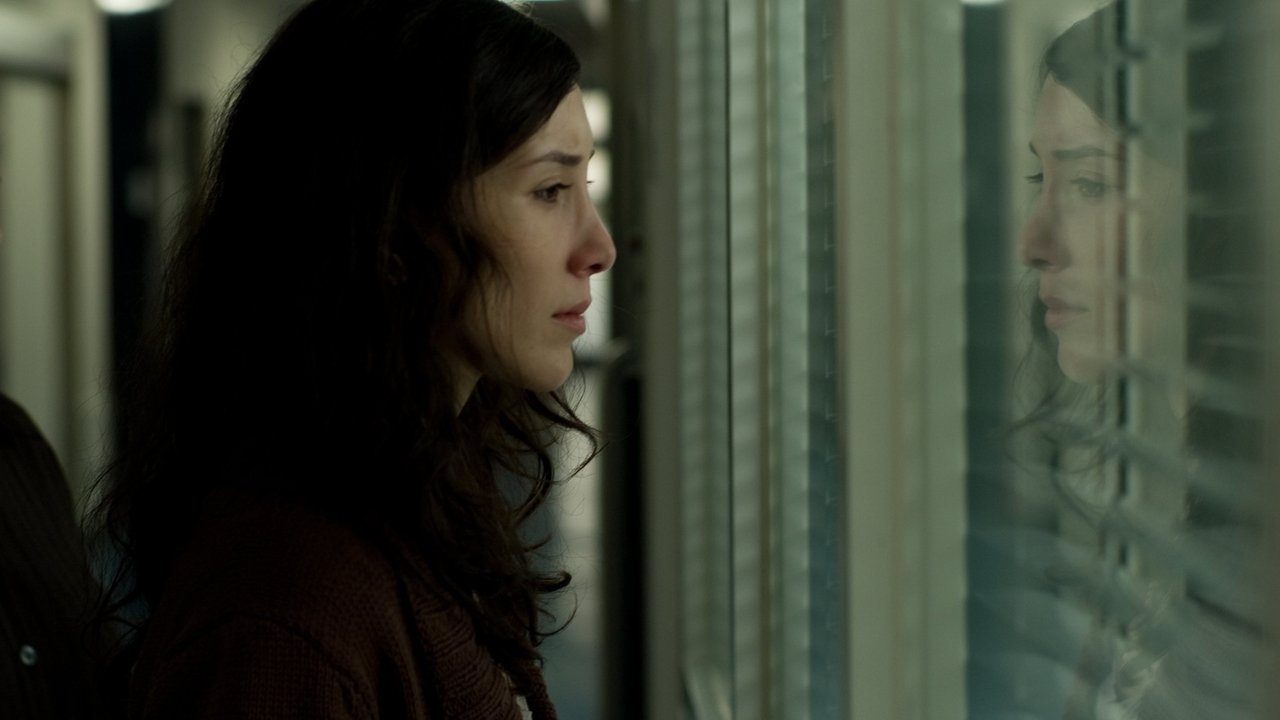SnoopyStyle
Umay leaves her abusive husband Kemal in Istanbul with her son Cem to go home to Germany. Her father Kader is concerned about the family's honor. The older brother Mehmet is angry. The youngest brother Acar is scared but kind. Kemal rejects Umay but wants his son Cem back. As Kader and Mehmet try to force the situation, Umay calls the police and she escapes with Cem to a women's shelter. She finds a job with a supportive boss and a new boyfriend. Her younger sister Rana is rejected by her fiancee's father due to the situation. Rana tells her mother that she's desperate to marry Duran because she's secretly pregnant. Kader has to pay off the father to get them married. Umay shows up unexpectedly at the wedding and has a meltdown. Even Acar is forced to confront the lost of family honor.The portrait of the lost of family honor is devastating. The pressure feels real. The need for Umay to reconnect with her family does feel unreasonable and excessive. I doubt a reasonable Umay would show up at the wedding. After the wedding, it seems impossible for her to go to the hospital especially carrying her son with her. Then the final scene has too many twists. It only accentuates the twisty manufactured nature of the writing. Writer/director Feo Aladag needs to tone down some of the more melodramatic developments in the last act.
Mr. Redingot
Shipload of clichés! I know it is Feo's first movie, but the way she tries to take will not take her to anywhere... We know how the good Iranian director fails when they just try to grasp "the oriental stuff" and polish it for the Western movie theaters.In this movie, it seems like Feo Aladag, as a director & writer, has a lot to say, but since she just decides to mix up 'every single ideas' in her first movie, everything looks so simplistic, and kind of banal.There is nothing much to talk about the acting, but the plot is full of clichés. The women's tragedy in this world, especially in the more traditional cultures, is unbearable truth, but in this movie, the director seems to just take advantage of this truth to ingratiate herself to the Western audience. So sad to see.It does not seem that the writer&director put effort to deepen the scenario, because in some scenes, the scenario and fiction are seen very amateurish.To name just one example, we can simply put that the movie is based on a tradition family which got angry of their daughter since she left her husband, right. It is okay, but in the later scenes we see that another daughter of the same family got pregnant without marriage, and the thing the same father does is just bribing the lover, who got his daughter pregnant. The father, who even decided to kill one of his daughters just because she left her husband, bribed the lvoer who got his another daughter pregnant? Does it make any sense? Yes, things are not only black and white, but the movie makes us think that in the family's world it is black and white, and then the movie itself spoil the world it hardly built.
aMomentaryLapseOfReason
I've never watched the same movie three times in a day. Until now. Die Fremde ("When We Leave", probably a better translation would be "The Strangers") is a story about Umay, a young woman living with her husband and son in Istanbul. To protect the child and herself from an oppressive marriage she decides to leave the husband and move back to her family in Germany. Her father, confronted with the choice whether to support and protect his daughter or to be publicly humiliated by the Turkish community, decides to comply with established social norms and wants to send them back to Turkey. Umay refuses to go, but the family is determined to send the child back to the father. From this point the story describes Umay's attempts to protect the child from being taken from her and re-gain acceptance of her family as a single mother. The movie made tremendous impression on me. Watching was a real life changing experience. The most impressive aspect was definitely Umay's character played by Sibel Kekilli. There is something magnificent about her. I believe I learned more from Umay about the love, acceptance and forgiveness than from all the years spent in church. On the negative side I didn't really like the ending, but you can't win them all. I was curious to find out what critics have to say about the movie. Interestingly, most of them missed the main theme. The movie is not about a Muslim women trying to "embrace Western values of personal integrity and freedom", or "clash of the cultures". Umay was born in Germany, her best friend is a Non-Muslim, and apparently she is very well adopted into Western society. This is a story of a mother who is dedicated to the well-being of the child and she does not want to compromise his happiness because of any social expectations, whether they are coming from Western Society or from Islam religion. As such, the story is universal and applicable to theists and atheists, East and West. Probably one of the best movies I've ever seen and certainly the most influential.
Red-125
Die Fremde (2010) was shown in the U.S. with the title "When We Leave." The film is written and directed by Feo Aladag, a German woman who is very familiar with the culture of Turkish families living in Germany.Umay, played with outstanding skill by Sibel Kekilli, is a young woman who grew up in Germany, but who lives with her husband and his family in Turkey. Umay lives within the strictly patriarchal traditional society of Turkey, which includes--in her case--being beaten by her husband. She takes her young son with her and escapes to Germany, where her family lives.The remainder of the movie concerns Umay's attempt to reintegrate herself into her family, and into mainstream German culture. Although she is treated well by the Germans with whom she has contact, she is barely tolerated--at best--by her family.When Umay learns that her brother is planning to kidnap her son and send him back to Turkey, she leaves again, and goes to what appears to be a shelter for battered women.Although she is treated well at the shelter, she cannot bear to cut herself off from her family. She keeps returning, and keeps being rejected, sometimes psychologically, sometimes physically. She keeps hoping that their (real) love for her will overcome the humiliation they feel because her behavior is considered shameful.The acting in this film is outstanding, and there are no weak links. However, I have to single out the young boy--Cem--played by Nizam Schiller. He is uncannily believable as a child who can't understand why he must move, and then move again, and yet again.We saw this film at the excellent Little Theatre in Rochester, NY. However, it will do well on DVD. Incidentally, the original title "Die Fremde," means "strangers" or "foreigners." This title is more accurate than the U.S. title, because Umay and Cem are foreigners wherever they go.This film is relatively long, and very grim. There is one scene of high spirits as Umay and a young German man ride through Berlin on a motorbike, but it doesn't ring true. All the rest is grim, grimmer, and, ultimately, grimmest.I'm not going to reveal the ending. The reason I labeled this review as a spoiler--a first for me--is that potential viewers should know that this is a great film, but it is extremely depressing. You can't walk out of the theater, or get to the end of the DVD, and just move on. So it's a "must-see" film, but only if you can handle the emotional consequences.


 AD
AD

